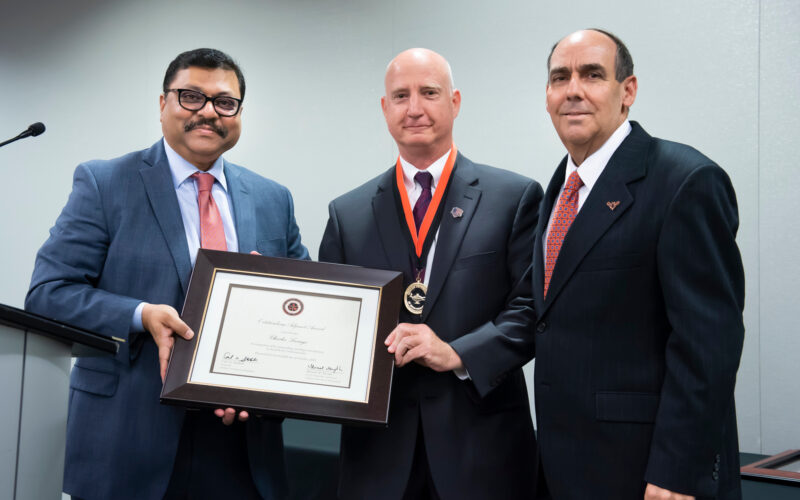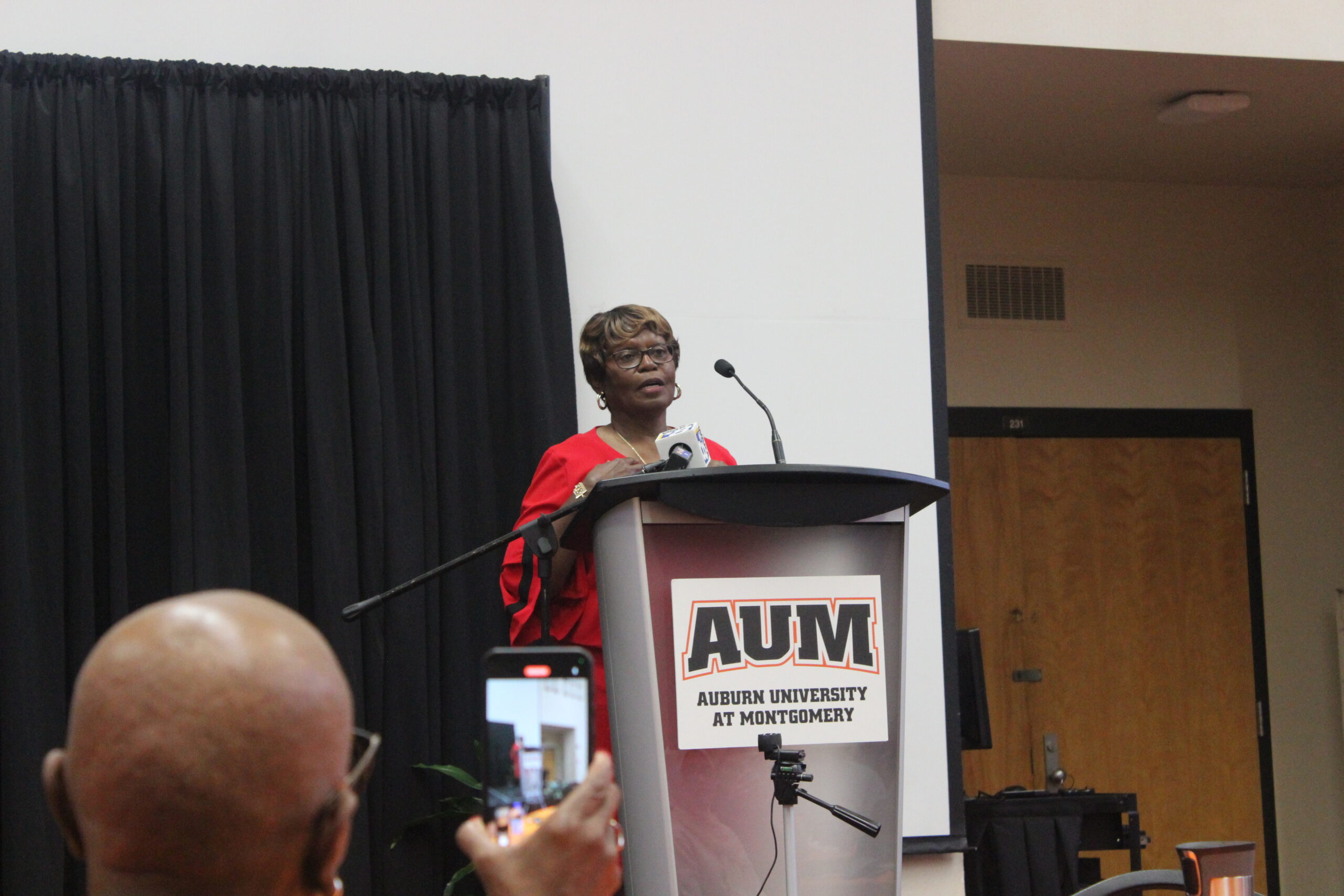Pictured from left to right are Provost and Senior Vice Chancellor Mrinal Varma, distinguished lecturer Charles Livings and Chancellor Carl Stockton at the 2019 Chancellor’s Convocation. Photo courtesy of Frank Williams.
By: Trace Espinosa
Growing up in the outskirts of Alabama, Charles Livings has grown up surrounded by important leaders with a strong sense of resilience in terms of work ethics along with a commitment to others, which can best be summed up by the phrase “no one left behind.” His upbringing is characterized by traits that we find in leaders ourselves, such as a duty to help others when in need along with values of responsibility to others and helping them make a better future for tomorrow.
He recalls that it was the leaders and authority figures in his life that made him who he is today, to which later he remarked that he would not change any decision because everything he had done had led to this day and moment. This strong sense of leadership in his life making who he is today is upheld by the Journal of Humanities and Social Sciences Innovation’s statements when they say “A leader in their leadership must have the ability to build relationships among people. It is the core of fostering motivation, innovation, creativity, inspiration, dynamism, mutual respect, support and responsibility that can be cultivated through communication.”
Throughout his time growing up, Livings recalled the most important figures in his life were those who distinguished themselves as leaders. Oftentimes we forget in our own lives the impact that certain people can have in our lives and how they can come to shape it, which is something that he figured out and uses to help others. These role models that he grew up around, such as service members, gave him the idea to give back and to choose a career path that is full of philanthropic choices. Livings stated that he feels almost “indebted” to provide wisdom and guidance to those who need it because he feels that it is those people who can make the most impact.
In the mid to late 1980s, his career in communication and journalism started to grow and become recognized. His affinity for spreading awareness in his writing was scouted when he entered what is now known as the Southeastern Journalism Conference; eventually becoming nominated among 30 other panelists- which is an impressive milestone of Livings. Nakamura and Milner in their article titled “Inclusive leadership via empathic communication,” cite that for an important leader to emerge and to take effect, one must come from an empathetic point of view to help others; essentially this person must use their feelings to write what they know, something that he stated many times throughout our interview. Due to this nomination, universities such as the University of Iowa and Nebraska reached out and offered scholarships to Livings to attend their institution to further his career.
Despite these tempting offers by the two universities, well-known for their recognition and name in the communication and journalism field, Livings had felt he wanted something closer to home and more personal. He briefly considered living in Houston, Texas as the University of Texas at Austin also sent him a letter he ultimately declined after realizing that he wanted something more local and grounded, eventually attending another university for his master’s.
One of the more pivotal moments in his life was when he was asked if there was anybody or anything that had influenced his teaching style or even philosophy of life, such as an old text, a book, a person, or anything. Which, after thinking for a while, Professor Livings responded that a former AUM chancellor and associate professor Gwen Nance, both deeply affected his outlook on life and his teaching style and ultimately decided to stay and teach here at AUM. This moment can best be reflected as well in an article published by the University of Pennsylvania which concluded that effective leadership is built on the grounds of personal experience with another good leader, which ensures that there is transparency and accountability. Livings’ interaction with Nance perfectly shows how one good leader in your life can foster trust and further one’s leadership traits.
Livings has devoted much of his time to helping others solve their communications challenges, one such way is through his own company “Tip of the Spear”. This company vows to help teams and groups of people overcome any obstacles and rough patches they face in life through the use of effective communication. Professor Livings has said that there is a profound impact that everyday communication has on a person and that a good communicator is the key to a successful team or to becoming a successful leader.
Livings said to “turn on the light for others” as many students have stated that Livings is a phenomenal professor. Livings also stated that poor communication is the root cause of many problems either in one’s life or the workplace. Simon & Simon, a blog centered around providing social benefits to the general public, cites in their article “Twenty business workplace communication statistics” that only 13% of employees feel that their boss or supervisor communicates effectively. Professor Livings discussed this issue and explained how a lot of the time the work environment or better relationships can blossom if the right communicator or effective communication could bridge the gap between people.
At the end of the interview with Livings, he was asked if there was anything he could change in his life, even if it was small and insignificant, to which he replied with “no”. This professor made me, and other students, realize that every decision we ever made leads us to where we are now. And that this moment of being is all because of your past decisions. Livings says he loves what he does and that his greatest milestone in life is having a deep connection with people in such a way that they always leave him feeling more confident in themselves.




